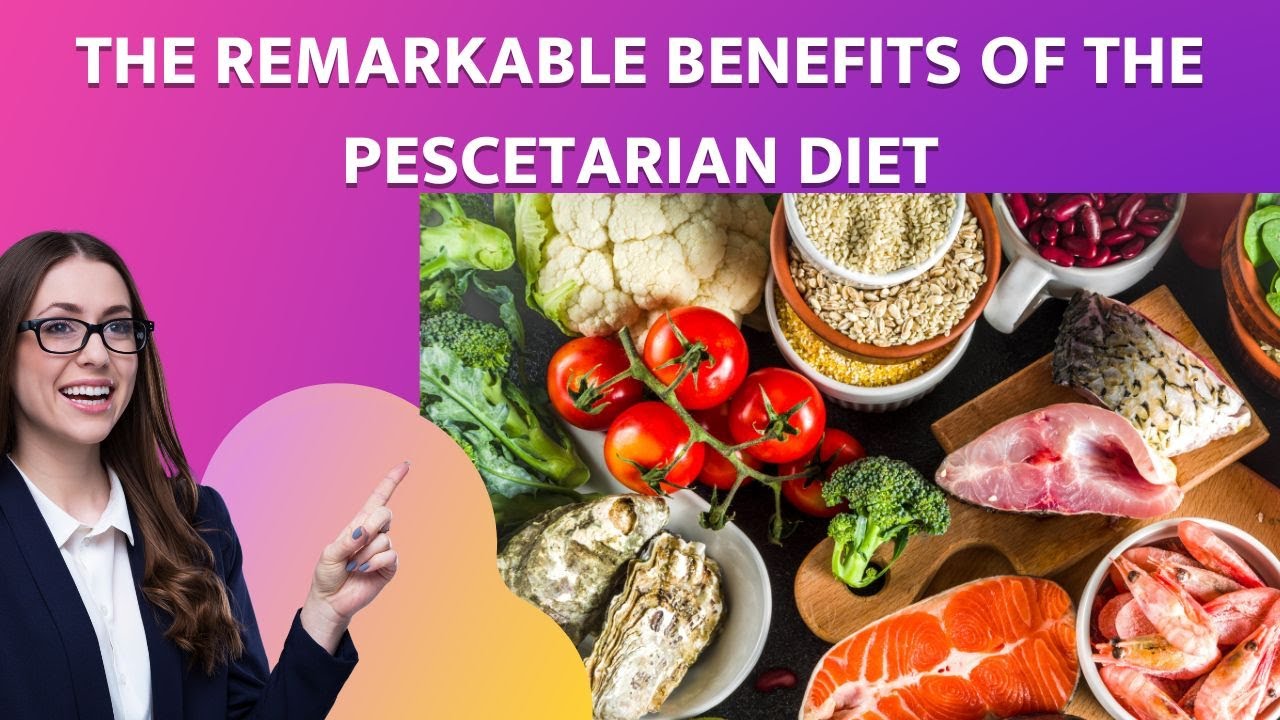Benefits of a Pescatarian Diet
A pescatarian diet is a type of diet that primarily focuses on plant-based foods but also includes fish and seafood. It is a flexible and balanced approach to eating that offers numerous health benefits. In this article, we will discuss the benefits of a pescatarian diet and how it can positively impact your overall well-being.
Improved Heart Health
One of the key advantages of a pescatarian diet is its positive impact on heart health. Fish and seafood are excellent sources of omega-3 fatty acids, which are known to reduce the risk of heart disease. These healthy fats help lower blood pressure, reduce triglyceride levels, and decrease the risk of abnormal heart rhythms.
Weight Management
Following a pescatarian diet can also aid in weight management. Fish and seafood are lean sources of protein that are low in saturated fat. Protein is essential for building and repairing tissues, and it also helps keep you feeling fuller for longer periods, reducing the likelihood of overeating. Additionally, the abundance of fruits, vegetables, and whole grains in a pescatarian diet provides essential nutrients while being relatively low in calories.
Reduced Risk of Chronic Diseases
Research has shown that a pescatarian diet can help reduce the risk of chronic diseases such as type 2 diabetes, certain types of cancer, and metabolic syndrome. The high intake of plant-based foods, combined with the beneficial omega-3 fatty acids found in fish, contributes to improved insulin sensitivity, reduced inflammation, and better overall metabolic health.
Brain Health and Cognitive Function
The omega-3 fatty acids found in fish are not only beneficial for heart health but also play a crucial role in brain health and cognitive function. These fatty acids are essential for the development and maintenance of brain cells, and they have been linked to a reduced risk of cognitive decline and neurodegenerative diseases, such as Alzheimer’s disease.
Optimal Nutrient Intake
A pescatarian diet can provide a wide array of essential nutrients that are necessary for overall health and well-being. Fish and seafood are excellent sources of high-quality protein, vitamins, and minerals, including vitamin D, vitamin B12, iodine, selenium, and zinc. Additionally, the emphasis on plant-based foods ensures a high intake of fiber, antioxidants, and phytochemicals, which have numerous health benefits.
Sustainability
Choosing a pescatarian diet can also have positive environmental implications. Compared to traditional meat-based diets, pescatarian diets generally have a lower carbon footprint and contribute less to greenhouse gas emissions. Sustainable fishing practices and responsible seafood consumption can help preserve marine ecosystems and protect endangered species.

A pescatarian diet offers a range of health benefits, including improved heart health, weight management, reduced risk of chronic diseases, enhanced brain health, optimal nutrient intake, and sustainability. By incorporating fish and seafood into a predominantly plant-based diet, individuals can enjoy a balanced and nutritious eating pattern that promotes overall well-being. Consider adopting a pescatarian diet to reap these benefits and support a healthier lifestyle.
Frequently Asked Questions about the Benefits of a Pescatarian Diet
1. What is a pescatarian diet?
A pescatarian diet is a vegetarian diet that also includes seafood and fish. It excludes other types of meat such as poultry, beef, and pork.
2. What are the health benefits of a pescatarian diet?
A pescatarian diet can provide various health benefits, including a lower risk of heart disease, improved brain function, reduced inflammation, and a higher intake of essential nutrients like omega-3 fatty acids and vitamin D.
3. Can a pescatarian diet help with weight loss?
Yes, a pescatarian diet can support weight loss as it tends to be lower in calories and saturated fats compared to a diet that includes other types of meat. Additionally, the high protein content in seafood can help increase satiety and reduce cravings.
4. Is it safe to get enough protein on a pescatarian diet?
Absolutely! Seafood, such as fish and shellfish, is an excellent source of protein. By incorporating a variety of seafood options into your diet, you can easily meet your protein needs.
5. Can a pescatarian diet provide all the necessary nutrients?
Yes, a well-planned pescatarian diet can provide all the necessary nutrients. Seafood is rich in omega-3 fatty acids, iron, zinc, and vitamin B12. Combining it with a variety of fruits, vegetables, whole grains, and legumes ensures a balanced intake of essential nutrients.
6. Are there any potential risks of a pescatarian diet?
While a pescatarian diet can be healthy, it’s important to be mindful of the mercury content in certain types of fish. Pregnant women, nursing mothers, and young children should avoid high-mercury fish and choose low-mercury options instead.
7. Can a pescatarian diet be suitable for children?
A pescatarian diet can be suitable for children, but it’s important to ensure they receive all the necessary nutrients for their growth and development. Consulting with a pediatrician or a registered dietitian can help create a well-balanced pescatarian meal plan for children.
8. Can a pescatarian diet be beneficial for the environment?
Yes, a pescatarian diet can have a lower environmental impact compared to a diet that includes meat from land animals. It requires fewer resources, produces fewer greenhouse gas emissions, and contributes to the preservation of marine ecosystems when sustainably sourced seafood is chosen.
9. Is it possible to follow a pescatarian diet on a budget?
A pescatarian diet can be affordable, especially if you focus on seasonal and locally sourced seafood options. Canned fish, such as tuna or sardines, can also be cost-effective protein sources.
10. How can I start a pescatarian diet?
To start a pescatarian diet, gradually reduce your intake of meat and replace it with seafood options. Experiment with different types of fish and shellfish, and ensure you have a variety of plant-based foods to create balanced meals.




